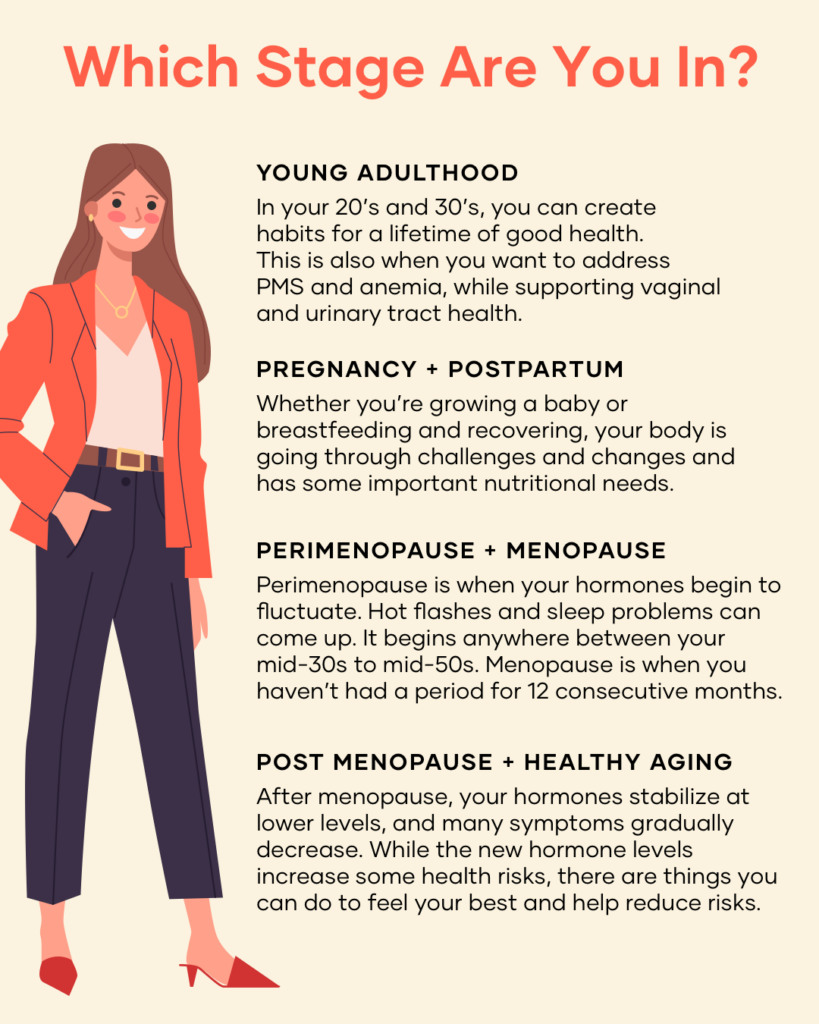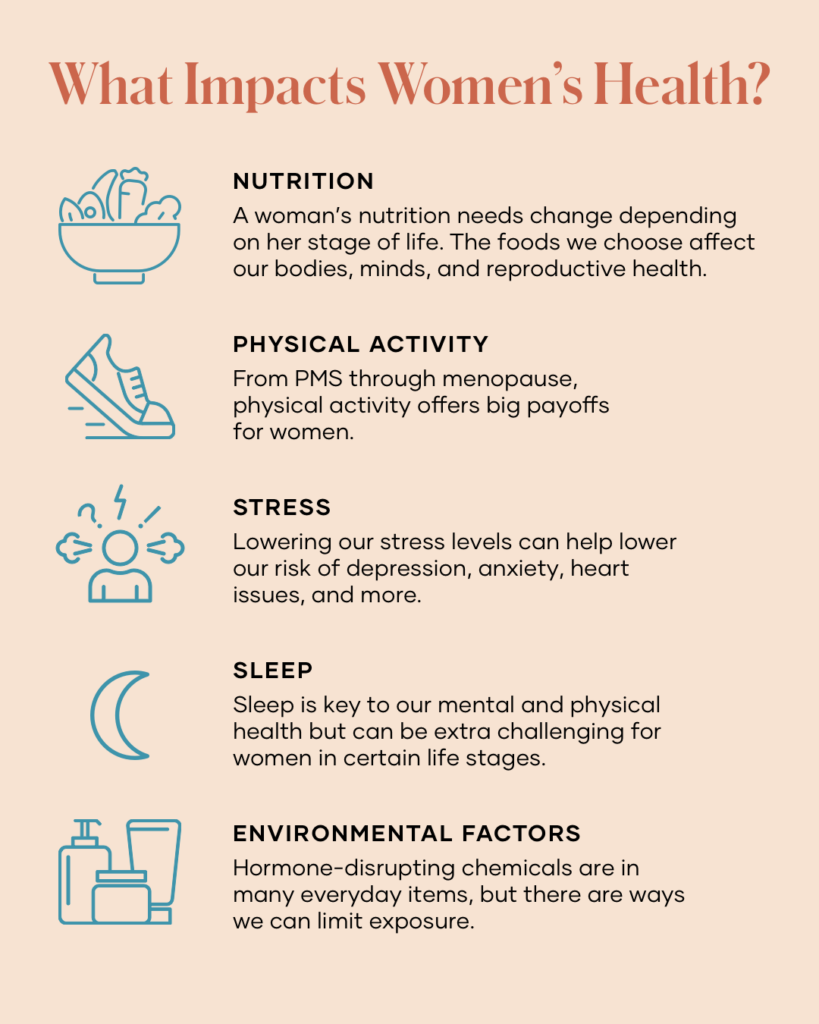NUTRITION FOR WOMEN’S HEALTH BALANCE 😊
Taking care of our health as women starts with how we nourish ourselves. 💖 Let’s kick today off with the basics of nutrition tailored for US.
🥗 Nutrition 101 for Women of all Life Stages
· Focus on the balanced basics. Keep it simple by filling your plate with whole foods, including fruits, veggies, whole grains, healthy fats, and lean proteins. These foods give you nutrients that are essential to your health. Most women don’t eat the recommended 5 servings a day of fruits and veggies––which are packed with nutrients, fiber, and antioxidants.
· Optimize with super foods for women. There are good reasons we have berries, cruciferous veggies, beans, whole grains, and omega-3-rich foods on our Trackers. Watch for our next post, where we’ll explore these foods and more!
· Limit the ultra-processed stuff. Limiting sugar supports healthy hormone levels by helping to support healthy blood sugar levels. Highly processed foods are problematic because they’re typically low in fiber and nutrients and high in fat, added sugar, or salt.
· Fill any nutrient gaps with a high-quality multivitamin supplement. Make sure you have your nutrient bases covered. We love Shaklee Vita-Lea®, Vitalizer™, or Meology® supplements for this.
·
🍽️ Women’s Special Nutrition Needs by Life Stage
· Young Adult through Peri-menopause
At this stage, you are losing iron with each menstrual cycle, so getting enough iron is key. Aim for the RDA of 18 mg of iron a day. Building and maintaining healthy bones is crucial during young adulthood to prevent osteoporosis later in life. A balanced diet rich in calcium and vitamin D helps support bone health.
· Prenatal + Pregnancy + Breastfeeding
Nutrition plays a vital role throughout pregnancy and breastfeeding, providing critical nutrients for both you and your baby. These needs are so specific that we’ve created the pregnancy nutrition info graphic below.
· Postpartum
With a new baby at home, your body is working overtime to recover from pregnancy and produce breast milk. You have several important nutritional needs, which we outlined in the postpartum info graphic below.
· Menopause + Post-Menopause
After menopause, lower estrogen levels make you less able to retain calcium and more vulnerable to losing bone mass. Calcium, magnesium, and vitamin D become extra important to help prevent osteoporosis and your calcium RDA increases to 1300 mg. To limit age-related muscle loss, you also want to support your muscles with a protein-rich diet. Heart-healthy choices like berries and fiber-rich foods are essential at this time as well. Stay tuned for more on bone and heart health in a later post!
➡️ What nutritional supplements are you taking these days? Are you thinking about adding any? See us on Wellness 360 – #GenH and scroll through to see the many resources available to you.
*These statements have not been evaluated by the Food and Drug Administration. This product is not intended to diagnose, treat, cure, or prevent any disease.


